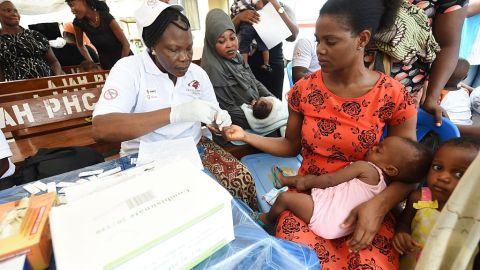World’s First Malaria Vaccine Coming to Africa in 2018

Malaria was eradicated in the United States by 1951, yet there were still an estimated 438,000 deaths worldwide from malaria in 2015. 90% of these deaths occurred in Africa, with 292,000 children dying before the age of five.
A new development may change these statistics for the better.
This week, the World Health Organization announced that the world’s first malaria vaccine will be piloted in three African nations (Ghana, Kenya, Malawi) in 2018.
First-ever @malariavaccine pilot will take place in Ghana, Kenya, & Malawi. Press release: https://t.co/8cpFTO13jX#vaccineswork#endmalariapic.twitter.com/Zou9nZViZi
— PATH (@PATHtweets) April 24, 2017
Malaria is a blood disease derived from a parasite, which is transmitted to humans through mosquito bites. Symptoms often appear flu-like (headache, fever, vomiting), which has made malaria prone to misdiagnosis in the past. If treated properly, illness and death from malaria are preventable.
The injectable malaria vaccine (RTS,S; commercial name Mosquirix) sets out to prevent children from the most deadly form of malaria, which is caused by Plasmodium falciparum. The vaccine was developed by GlaxoSmithKline (GSK) and the PATH Malaria Vaccine Initiative, with support from the Bill and Melinda Gates Foundation. RTS,S is the first malaria vaccine to receive approval from the European Medicines Agency (EMA).
“The prospect of a malaria vaccine is great news. Information gathered in the pilot will help us make decisions on the wider use of this vaccine. Combined with existing malaria interventions, such a vaccine would have the potential to save tens of thousands of lives in Africa."-Dr Matshidiso Moeti, WHO Regional Director for Africa (WHO statement)
Making Progress against Malaria in Africa
Malaria incidents went down 42% in Africa between 2000 and 2015, according to the World Health Organization. Much of the progress has been credited to the expanded use of indoor residual spraying and insecticide-treated bed-nets, along with improved testing.
Malaria is viewed as a "curable disease," which has prompted well-known advocates like Bill Gates to state that we can eradicate malaria within a generation.
Gates writes that there are three main components to this malaria eradication strategy:
Complete detection: detecting the malaria parasite before symptoms appear.
Complete cure: find a lost-lasting, single dose treatment. (RTS,S requires four doses.)
Complete prevention: eliminate the opportunities for mosquitos to transmite the parisite to humans.
The new malaria vaccine being piloted in 2018 requires four doses. The vaccine has previously been tested on children during clinical trials. Releasing the vaccine in Ghana, Kenya, and Malawi will determine the feasibility in administering the necessary four doses, and see if the success of the clinical trials can be replicated under real world conditions.
The Fight to Eradicate Malaria
There has been a dramatic positive trend in eradicating malaria, largely due to the serious level of investment from Gates and others. Researchers are going so far as to intentionally infect volunteers with malaria-infected mosquitos in an effort to better understand the disease.
"We have to figure out who is still driving transmission, who is not receiving access to the right tools and making sure that you extend access to everyone who’s driving transmission and everyone who is still vulnerable to the disease."-Philip Eckoff, Principal Investigator of the disease modeling team at Intellectual Ventures





